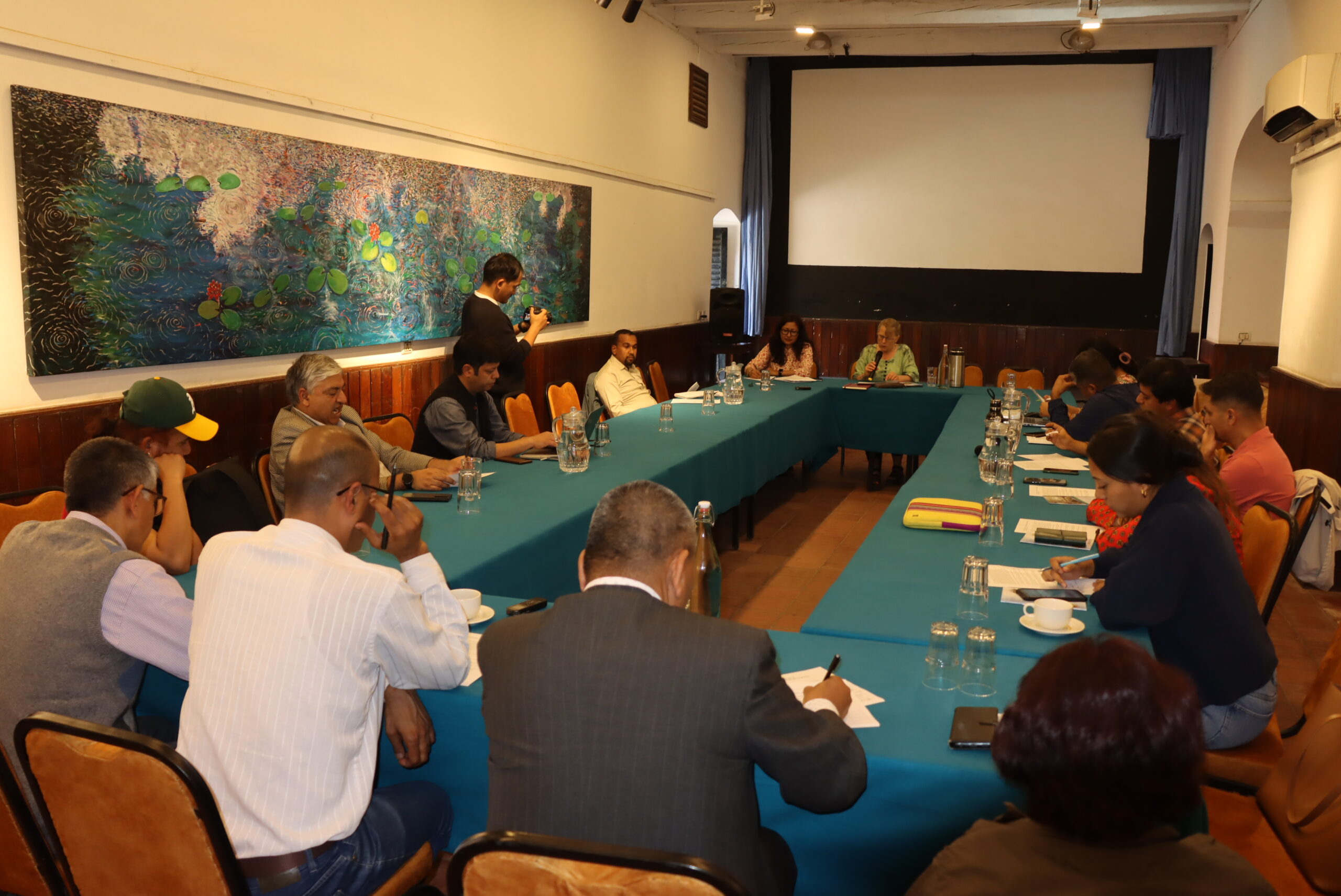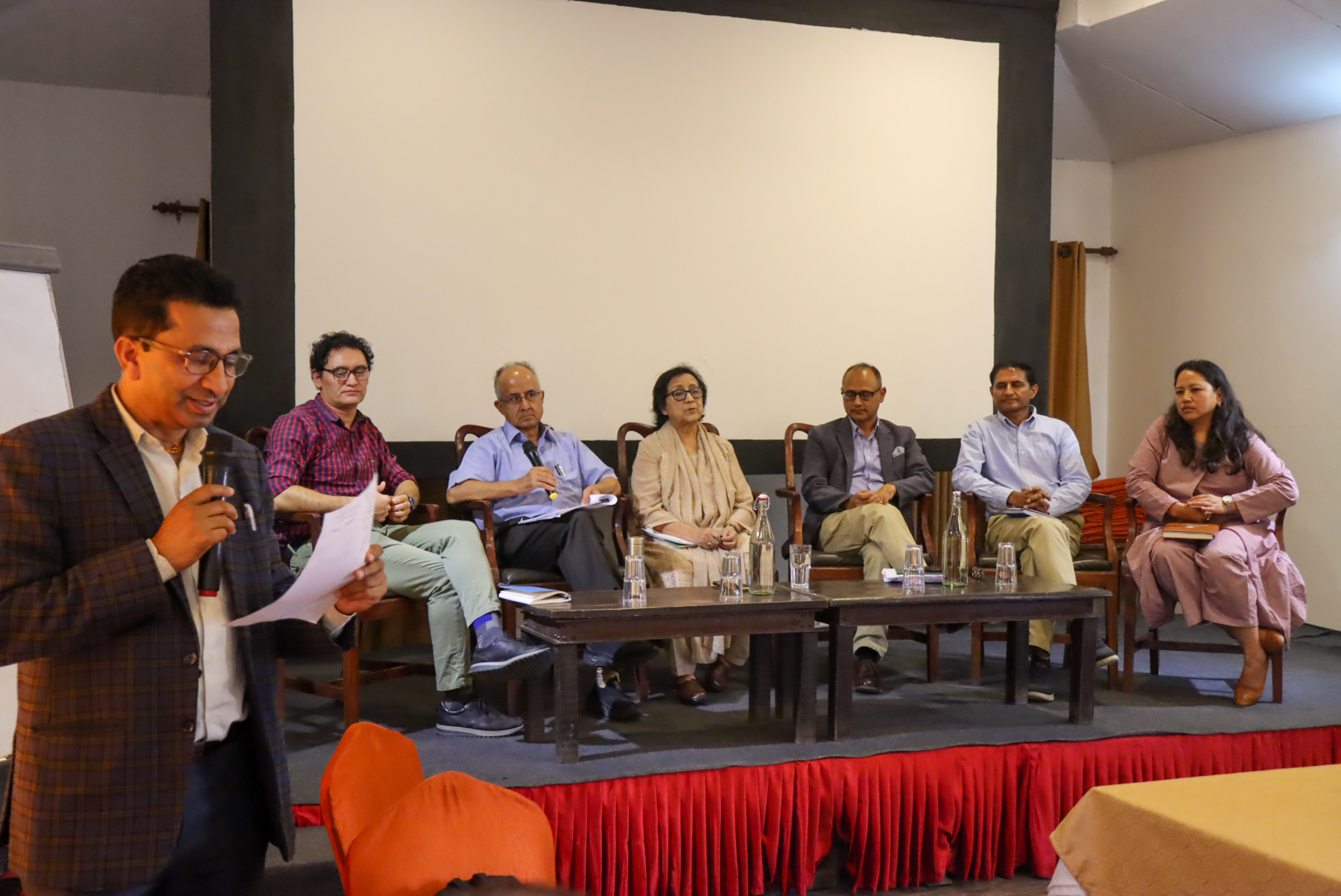
South Asia Institute of Advanced Studies (SIAS) organized an interactive workshop on “Sustainable and equitable water management in urbanizing Dhulikhel” on 27th December 2021 at Dhulikhel. The workshop was organized as a part of the ongoing ESRC-funded research project called PolCaps that aims to transform the political capabilities of the urban poor and marginalized communities. The project further focuses on water management practices and policies in Kavrebhanjyang, ward number nine, Dhulikhel Municipality (DM) as a case of analysis.
A total of 35 participants- 20 from the community, five ward representatives, four municipal authorities, and six researchers from SIAS- were present for the event. With this diverse range of stakeholders, the workshop steered discussions on preliminary research findings on good practices, key challenges, and ways forward for sustainable and equitable water management in light of growing urbanization, commercial farming, and a tourism-based economy.
The workshop started with welcome remarks and introductions of the participants. It was followed by reflections on almost a decade-long collaboration between SIAS and Dhulikhel Municipality. Mr. Kamal Devkota on behalf of SIAS and Mr. Ashok Byanju, the Mayor of Dhulikhel Municipality, reflected on the past research engagements, achievements and reassured mutual support for the ongoing and future joint initiatives.
Moving forward, Dr. Dilli P. Poudel and Dr. Anushiya Shrestha respectively presented the project’s introduction and objectives, and efforts and progress in water management of Kavrebhanjyang based on the project’s preliminary understanding. Adding on to this, Mr. Byanju updated on the municipality’s efforts and progress to improve water supply services and expressed assurance to provide needed financial and technical support to ensure equitable access to safe water. He further stressed the municipality’s water-strapped situation and the influence of party politics in water management. The mayor appreciated the program as an inclusive and concerted effort towards seeking sustainable water management opportunities and urged the participants to proactively participate in the discussion.
The next session adopted a social learning approach where the participants were divided into five groups based on the proximity of their settlements and shared water sources. They discussed local water management issues and listed potential solutions to various concerns. The discussions primarily focused on local context and concerns such as a) issues of escalating water demand induced by rising urbanization, commercial farming, and tourism-based economy, b) the positive aspects and challenges of deep boring, the technical, social, and economic aspects of local water resource management, c) positive aspects of the community-based water management system and its challenges, and e) way forward for sustainable, equitable and inclusive water management at Kavrebhnajyang.
The discussion was followed by a presentation from each group. Towards the end of the program, a five-member panel comprising the ward chairperson of Kavrebhanjyang, representatives of marginalized communities, and municipal authorities was formed. Each panelist expressed their views on water management issues and probable solutions for them.
In the end, Dr. Maniram Banjade’s concluding remarks touched upon the importance of a bottom-up approach and community ownership for the sustainability of water sources and a successful water supply system. The ward chairperson formally closed the event.
The participants highly appreciated the co-learning approach and stressed the integration of dispersed local water sources and groundwater-based systems to ensure water security for all. Along with that, they appreciated the commitments of the municipal authorities in ensuring financial and technical support for sustainable and equitable water management.
The event is expected to help strengthen the collaboration within and between the aforementioned stakeholders, improve and integrate scattered efforts of water management through inclusive and informed decision-making processes, and support in enhancing the political capability of the marginalized communities.




